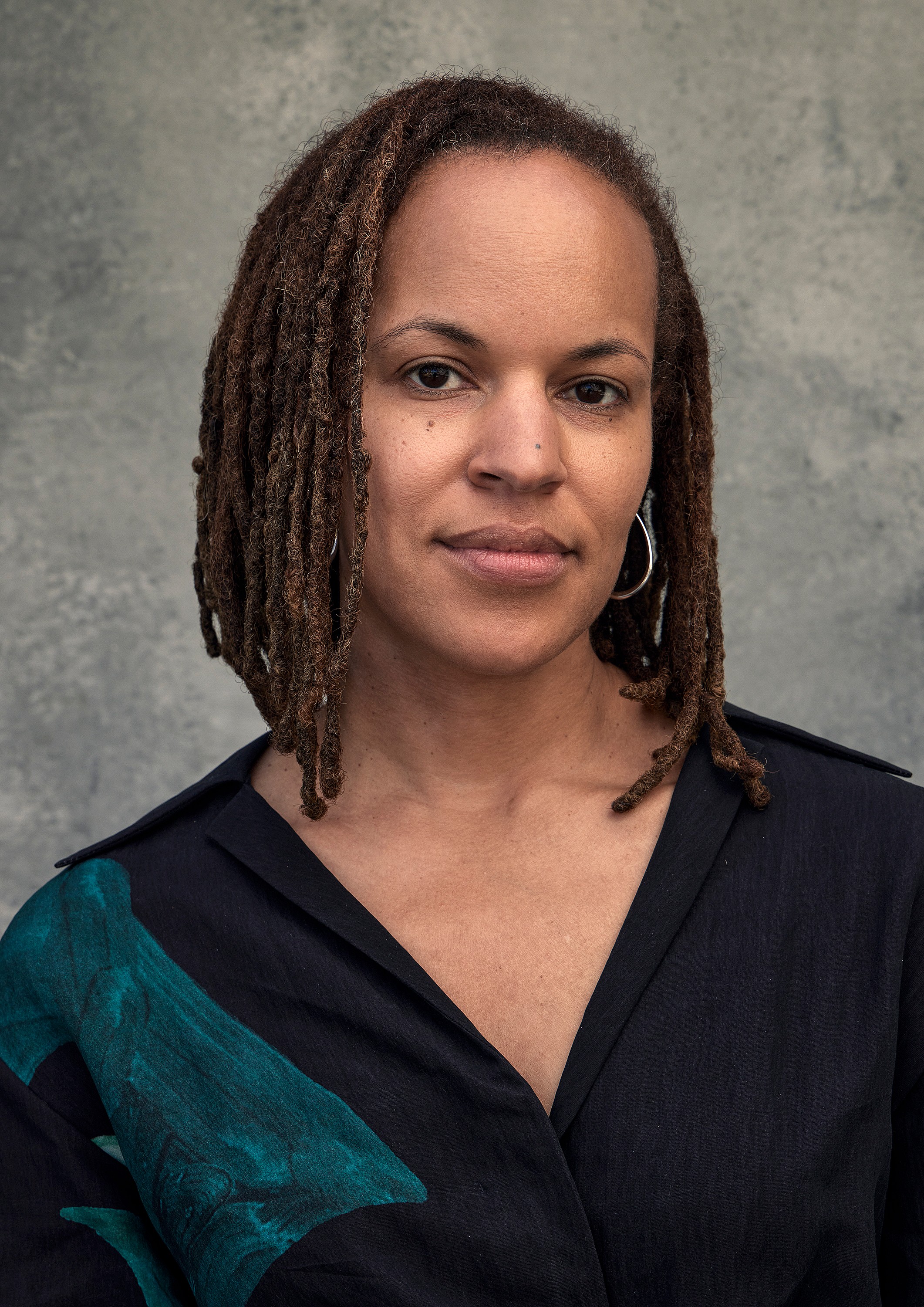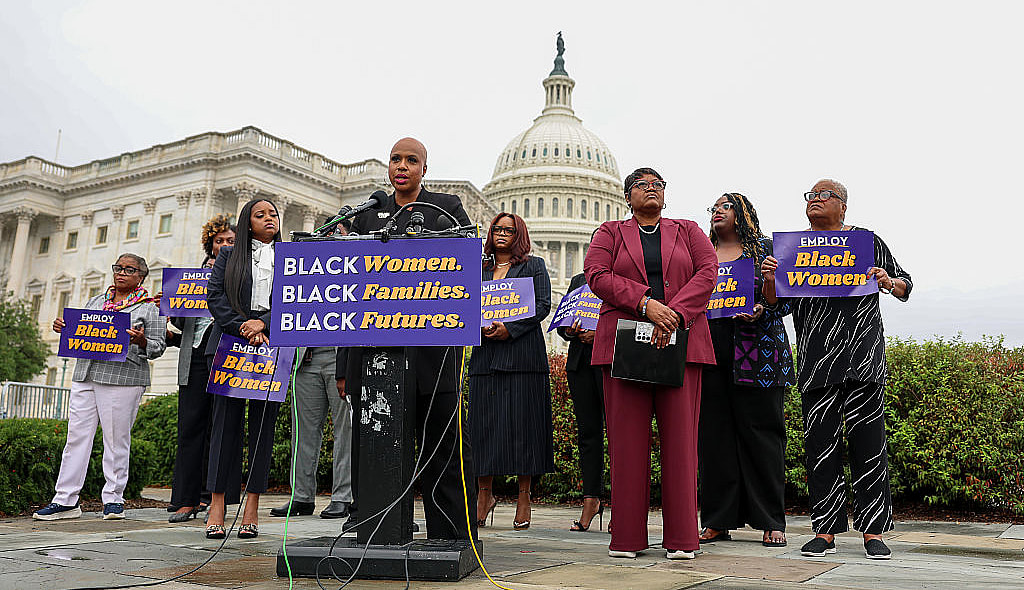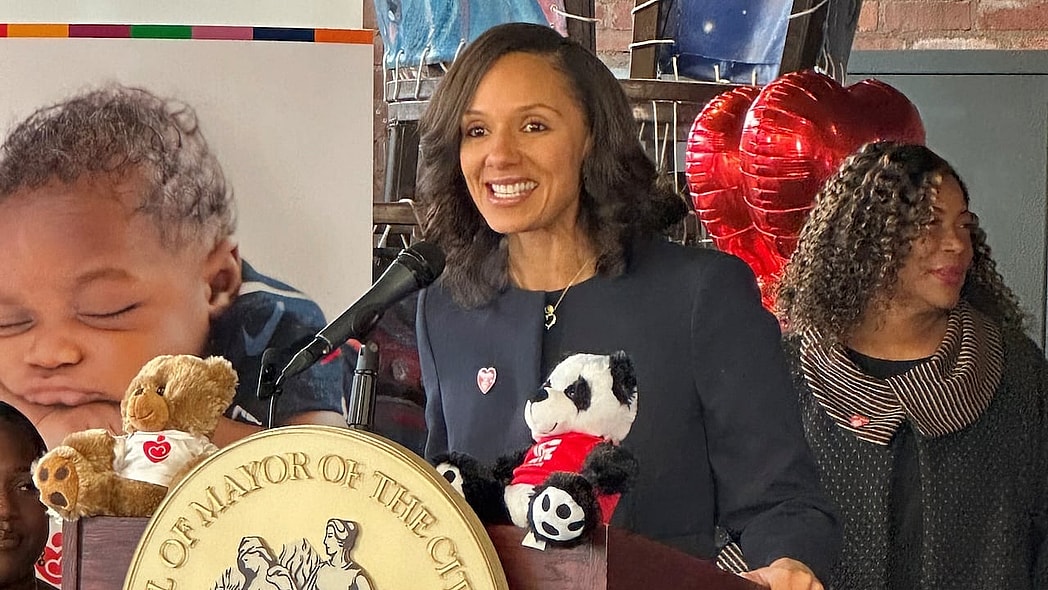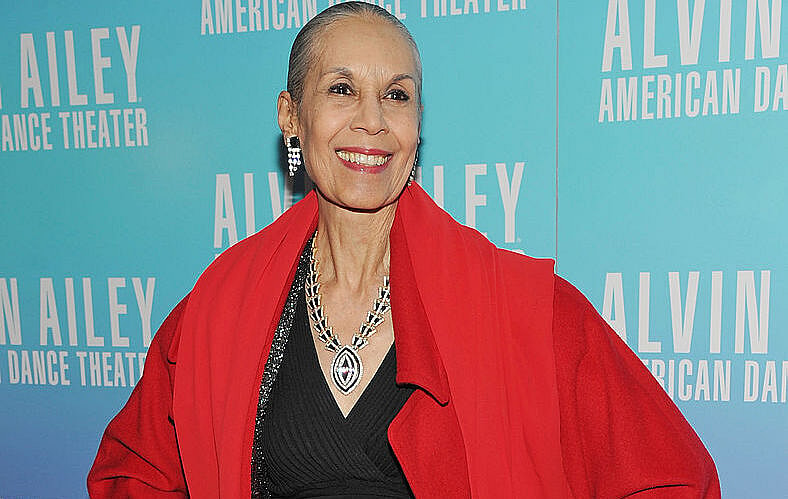Editor’s note: The following article is an op-ed, and the views expressed are the author’s own. Read more opinions on theGrio.
Commemorating Women’s History Month is embedded in my DNA because the roots of my advocacy were planted growing up in Virginia in my Black Southern family. We shared stories of resistance to Jim Crow and a plethora of laws and social constructs that were designed to harm or kill us as a matter of routine subjugation. In a state that, until 2000, celebrated Lee-Jackson-King Day, egregiously combining a day for Martin Luther King Jr., Robert E. Lee and Thomas J. “Stonewall” Jackson as if these three men held even a morsel of similar ideals and visions of freedom and civil rights for all.
As a college student, my advocacy further crystallized when I was introduced to our collective U.S. history that was omitted from my public school books. Learning about our persistence, protest and struggles for justice — particularly at the intersection of race, ethnicity, and gender — fueled my professional mission. I was determined to honor and follow in the footsteps of the many women of color for whom freedom was always the dream, such as Gloria Anzaldùa, Fannie Lou Hamer and the women of the Combahee River Collective.
Their dreams of freedom for me and others paved the way to a career that would advance intergenerational work. I am buoyed by the fact that my work will hopefully one day inspire another sisterhood of women who I trust will surpass me. The power of our collective contributions to securing freedom has not always been welcome in society, but nevertheless, we forge ahead because we understand we are never alone in our quest.
The opposition to diversity, equity and inclusion remains ever-present and just as insidious as it was more than 30 years ago in my home state. We need to look no further than the organized campaign to force Dr. Claudine Gay’s resignation at Harvard or the chronic underpaying of Black women actors such as Taraji P. Henson. Scholars have well documented the glass cliff phenomenon in which overqualified women are hired into leadership when organizations are at their lowest and then are sharply criticized and/or ostracized when they must make difficult decisions.
For women of color, the glass cliff too often extends when we go from “pet to threat,” as described by Dr. Kecia Thomas and colleagues. The intersection of race and gender often makes it perilous for Black and women of color to lead, and we do it anyway because our love for humanity and commitment to just futures are greater. We are brilliant, creative and courageous leaders illuminating new paths to freedom just like the stories we shared about our ancestors.
We are dreaming up new forms and entities that celebrate our rich histories, invite us into community and support bold action in the long arc to justice. This Women’s History Month, we lift up and honor the visions of Black women founders in the social sector who are creating a more just world:
- For example, Lulete Mola and Chanda Smith Baker, co-founders of the Minnesota Black Collective Foundation, with Repa Mekha. The Black Collective Foundation is building a thriving ecosystem of Black-led change and is MInnesota’s first Black community foundation.
- Jara Dean-Coffey, Equitable Evaluation Initiative (EEI), which is reimagining the purpose and practice of evaluation. EEI is changing the paradigm by seeding a field of practitioners who are advancing equity, expanding notions of objectivity, rigor, and validity; and embracing complexity.
- Dr. Wanjiru Kamau-Rutenberg, founder of B-WEL (Black Women in Executive Leadership) and senior fellow at the Ford Foundation. B-WEL is a global initiative focused on improving the numbers, experiences, and impact of Black women in senior and executive leadership across sectors.
Women
Each visionary leader seeks a desired future where all have what they need to thrive. I met each of these remarkable women two decades into my career in the social sector as I sought to reconnect with my radical imagination and bolder self. Observing their work and reflecting on my own, I invite those who support Black women’s and women of color’s visionary leadership to solidarity:
- Make space for freedom dreaming. We must freedom dream — tapping into our radical imagination and acting on our bold visions through daily experiments in practicing the future we deserve. We cannot overburden leaders with daily tasks such that there is little or no space for imagination. Retreats, coaching, and taking things off our to-do lists are places to start.
- Join us. Our visions are born of love for humankind. That includes all of us. We often create because the status quo pains us; it fuels us to imagine and work toward futures where we all can thrive. Our primary need is not for admiration but for you to join us. Be in a relationship. Speak up. Stand in solidarity.
- Choose abundance. I have been asked more than once why my work needs to exist when there’s another Black woman who is leading an effort in service to equity and justice. Let go of the bias that suggests that there can only be one Black woman or woman of color in whom your organization invests. The impact of choosing one on us as leaders is an unnecessary sense of competition. Invest. Invite in our experimentation and learn alongside us.
As Audre Lorde reminds us, we do not live single-issue lives — we have room for all the multiple ways we can freedom dream. We can erase the competition ethos within our organizations. We are Black and women of color visionary leaders who make what we need to create.

Dr. Chera Reid is a visionary advocate for justice and equity. Chera brings over two decades of experience to her work, fostering inclusive learning environments and challenging systemic barriers. As founder of Freedom Dreams in Philanthropy, she amplifies voices for racial justice and collective liberation while leading efforts to dismantle structural inequalities in education and beyond. With a Ph.D. from New York University and a commitment to lifelong learning, Chera continues to inspire and empower communities toward a more equitable future. As a mother and a yogi, she understands the importance of caring for the somatic body and spirit for longevity in this work.
Never miss a beat: Get our daily stories straight to your inbox with theGrio’s newsletter.










